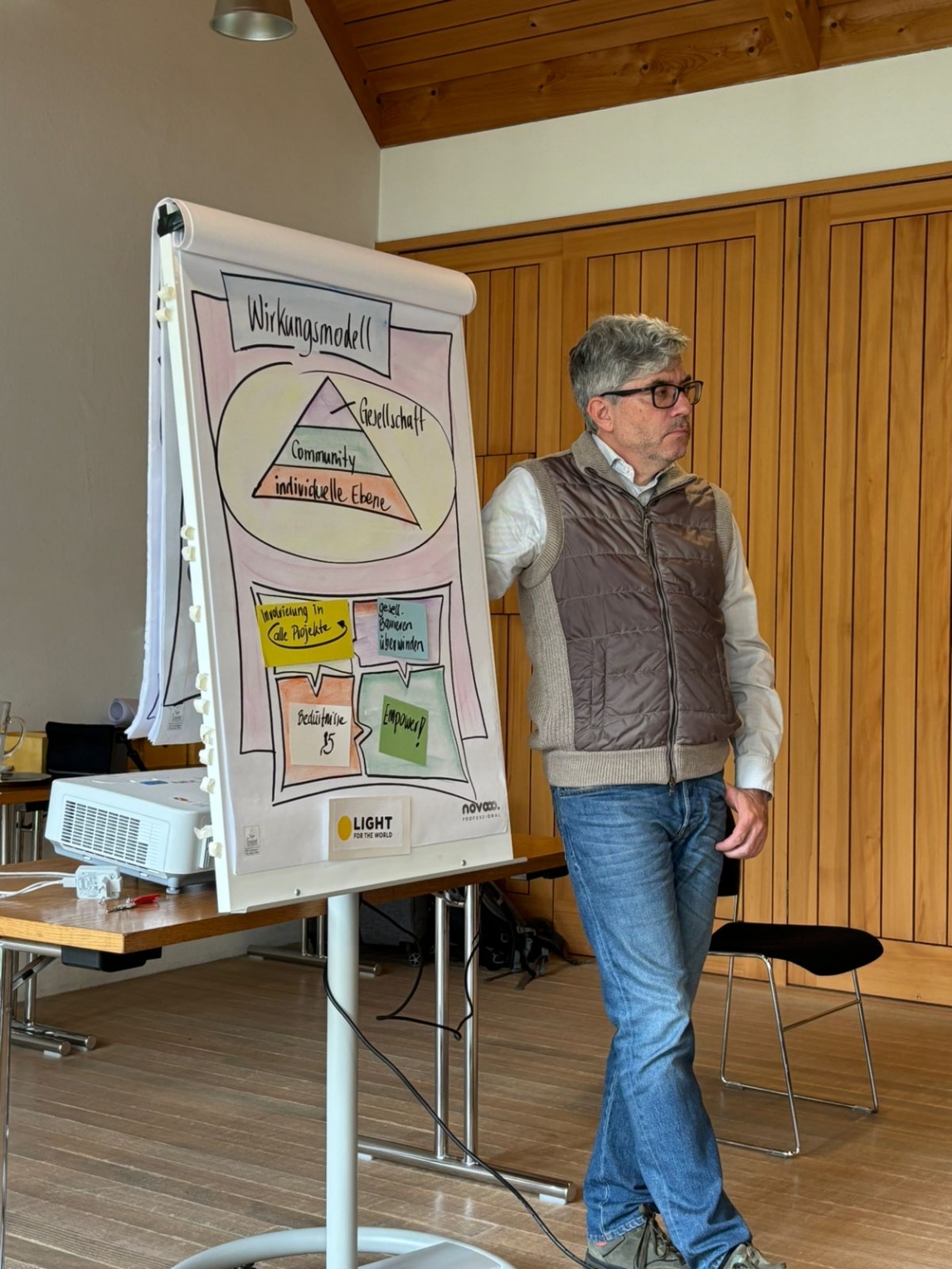Seminar: Decolonisation and Impact Measurement – Setting New Standards
On 8 May 2025, a thought-provoking seminar on the future of development cooperation took place at the Capuchin Monastery in Feldkirch. The event was organised by the State of Vorarlberg in collaboration with LED. Among the 18 participants, it was particularly encouraging to see strong representation from Liechtenstein.
The seminar addressed key topics that are becoming increasingly important in the field of development cooperation:
Decolonisation
How do colonial structures continue to influence systems today? Why is it essential to question existing power dynamics?
Impact Measurement
How can the impact of projects be made visible? What standards need to be taken into account?
What Does Decolonisation Mean?
Decolonisation goes far beyond the political independence of former colonies. It involves critically examining enduring power relations, mental models, and institutional structures. In development cooperation, this means that projects should not be planned and managed unilaterally by organisations from the Global North. Instead, partners in the Global South should be equally involved in identifying needs and designing implementation strategies. This approach reduces dependency and strengthens local ownership and self-determination.
Why Is This Topic So Relevant Today?
The topic is gaining importance as more and more partners in the Global South point out that true collaboration can only happen if outdated perspectives are challenged. At the same time, donors and funding institutions increasingly demand transparency and evidence of project effectiveness and sustainability.
Seminar Highlights
In the morning, Lawrence Oduro-Sarpong, joining live from Berlin, offered valuable insights into the topic of decolonisation. He encouraged participants to re-examine their own perspectives and critically reflect on international cooperation. Key questions included: Who gets to make decisions? Who controls resources? The discussions were lively, and many participants left with new insights relevant to their daily work.
Andrea Hoch from the Network for Development Cooperation – an alliance of around 40 civil society non-profit organisations with projects worldwide – summed it up as follows: “The seminar impressively showed how deeply colonial patterns still shape our thinking today. It is crucial for aid organisations to take a closer look and shape future collaborations in a more just and truly participatory way.”
Impact Measurement & Quality Standards
In the afternoon, Friedbert Ottacher highlighted the importance of making project impact measurable. He introduced simple frameworks that support transparent and comprehensible project design. The role of quality standards and recent trends in development cooperation were also discussed.
Maria Malin from the Ghana-based child welfare organisation Chance for Children added:
“For us, working on the ground, it is crucial that impact is not only assessed externally, but that our experiences and perspectives are part of the process. This seminar provided us with many valuable impulses.”
Looking Ahead
Feedback from participants was overwhelmingly positive. The seminar was described as enriching and inspiring. Many expressed a strong interest in exploring these topics further in future workshops. A follow-up seminar is currently being considered for autumn.
A heartfelt thank you to all participants for their strong engagement and open dialogue. We look forward to continuing the conversation!

